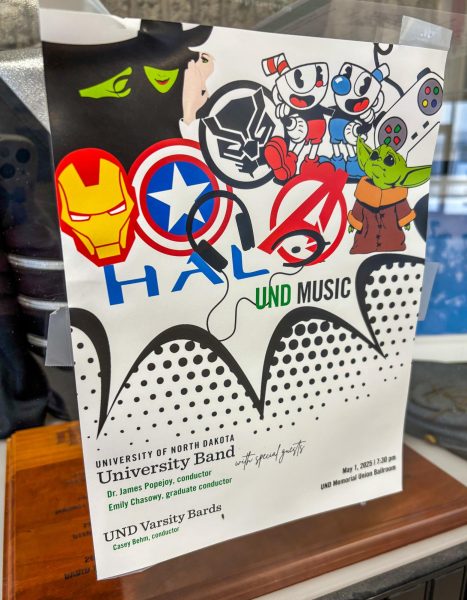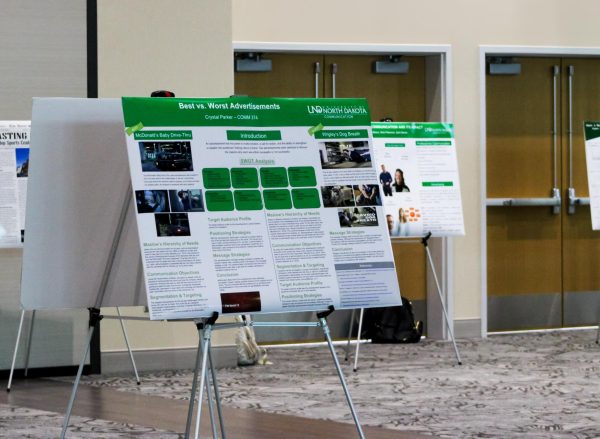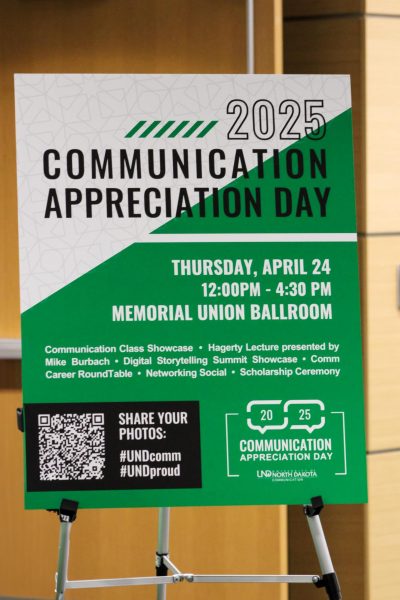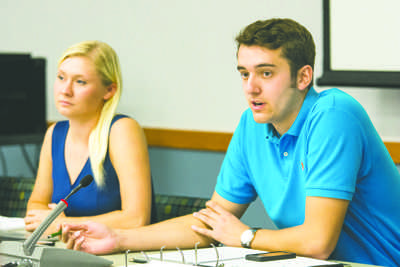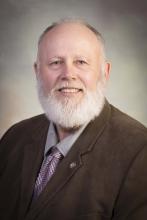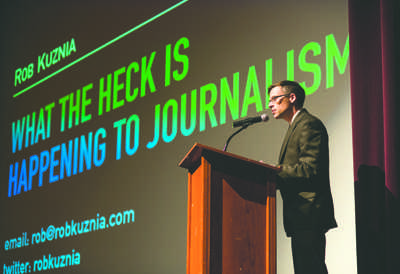More than 50 years of teaching
It takes a long time to make a difference. Some people spend the better part of their lives improving the lives of others.
Gordon Iseminger has taught history at UND since 1962, making him the university’s longest-serving faculty member.
Iseminger grew up on a farm in South Dakota. He worked on the farm until he was drafted at age 20 to serve in Korea. When he returned home, he had a GI Bill he didn’t want to go to waste, so he enrolled at Augustana University, 20 miles from home.
His plan was to study music. He had been a church pianist since age 13. He didn’t know if he would finish his degree, and if he did, he figured he would direct a high school glee club or go back to work on the farm.
That’s when he discovered he could major in history.
“As I think back, the kind of reading I did as a kid — and I read voraciously — was what I would now identify as history,” Iseminger said. “I was interested in history long before I knew there was a discipline called history.”
He continued to practice music and paid for some of his college expenses by giving piano lessons. He had six students. The going rate at the time was $1 per half-hour.
In the summer after Iseminger’s freshman year, the head of the history department returned from a trip to Germany, and he needed someone to type a manuscript for a book he was writing.
“I was known as a crack typist,” Iseminger said. “I had a clerk’s job when I was in the service, and the typewriter I used was a Remington. I was known as the Remington Raider.”
The Raider was hired to type the manuscript. That September Iseminger went to his employer’s home to have dinner with him and his family. That’s when he met a young German woman the family had hired as a domestic helper. A few months later, Iseminger and the young woman were engaged. They were married in 1958. They’re still married today.
Iseminger went on to receive a master’s degree from the University of South Dakota and a doctorate from the University of Oklahoma.
A lot has changed since Iseminger began teaching at UND. He said it was nothing in 1962 to ask an undergraduate student to read 3,000 pages in a semester and write a 35 to 40-page research paper.
“I can’t ask my graduate students to do that today,” Iseminger said.
He said many students today don’t have the same work and study habits students did then. Many young people also come to college unprepared and with a lack of some fundamental skills, according to Iseminger. For example, he said there is no longer as much time spent on learning composition, parts of speech and spelling.
This is why he emphasizes writing in his classes. He has a list of 20 or 30 words never to use in an essay, and he’s still adding to the list. He encourages students to be economical with their word choices.
“If I buy something that costs a dollar, I want it to be worth a dollar,” Iseminger said. “When I invest a word, I want the best return I can get on that word.”
Many young people also lack an understanding of basic history, according to Iseminger. He said history is important because it gives us a better understanding of what’s happening around us. It’s one thing to know what’s happening in the news; it’s another thing to know what has happened leading up to today’s events.
Iseminger rides a bicycle to campus year-round. It’s a two-speed Schwinn that belonged to his son in ‘67 or ‘68. When his son moved on to a ten-speed, Iseminger kept the green bike he describes as “built like a tank.” Two years ago, Iseminger rode it to campus when the temperature was minus 45.
“It was kind of tough pedaling, but I got here,” he said.
The Isemingers have three children, four grandchildren and four great-grandchildren.
“You ought to see Great-Grandma with the kids,” Iseminger said. “You’ve got to pry them out of her arms.”
Three Isemingers participated in UND’s 2014 commencement. Iseminger was the honorary parade marshal, his son got a degree and his grandson marched with the faculty. This was the first time in the university’s history that three generations from the same family have participated in a commencement.
Iseminger has no plans of retiring. For one, he hasn’t worked a day in his life, according to him.
“When I was on the farm, that wasn’t work,” he said. “It was dirty, disagreeable and taxing, but it wasn’t work.”
He also doesn’t consider teaching work. He said he’s been deceiving the taxpayers of North Dakota for more than 50 years.
“I would do this for nothing,” he said.
Iseminger believes he still has a lot to give UND.
“I’m still directing theses, I’m still publishing, I’m still doing a lot of research and I’m still, I think, reasonably effective in the classroom,” he said.
Others continue to recognize Iseminger’s contributions, as well. He received three awards in 2015.
He received the Larry Rowen Remele Award for contributions to the Northern Great Plains History Conference. He received the Joseph S. Height Literary Award from the Germans from Russia Heritage Society for an article he wrote. He also received an award from the Center for Western Studies for work in preserving the culture and tradition of the Great Plains.
Behind Iseminger’s home is a nearly empty lot with nothing but a lift station made for moving sewage. Soon after he and his wife moved into their home, they started planting trees and flowers on the lot. One day a neighbor stopped and asked why they were doing this. Iseminger’s reply perhaps best explains his longevity at UND.
“I told him, ‘Because I want the world to be a better place when I leave it than it was when I came in,’” he said. “And that’s what I’m trying to do now.”
Lucas Amundson is the features editor for The Dakota Student. He can be reached at lucas.amundson@und.edu



